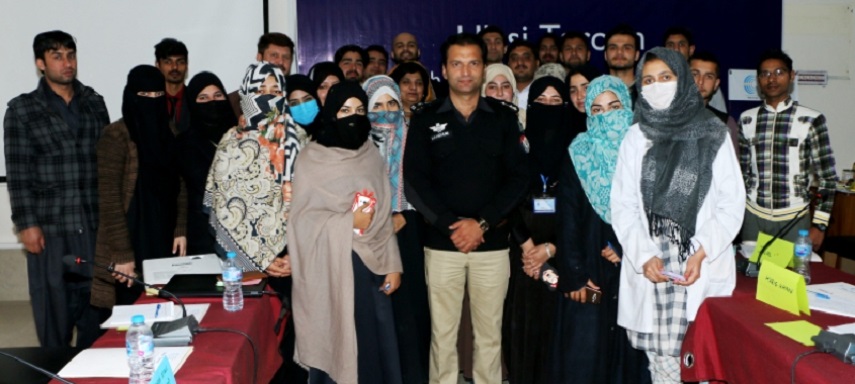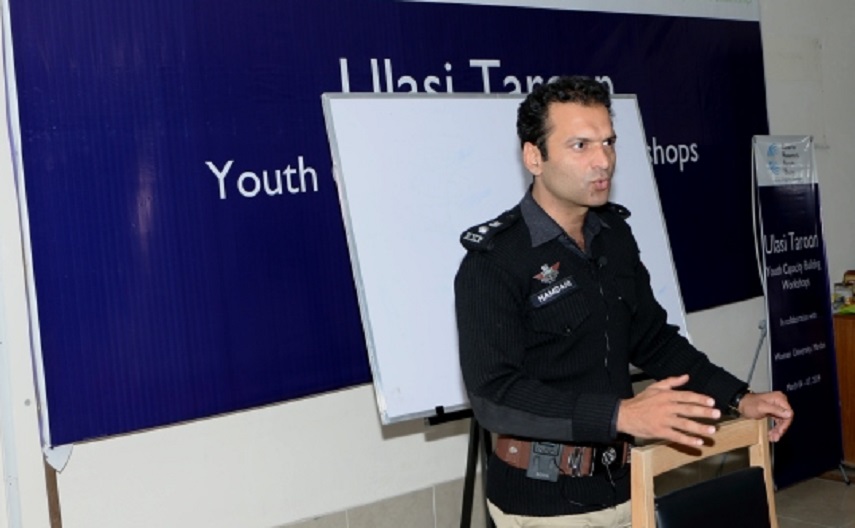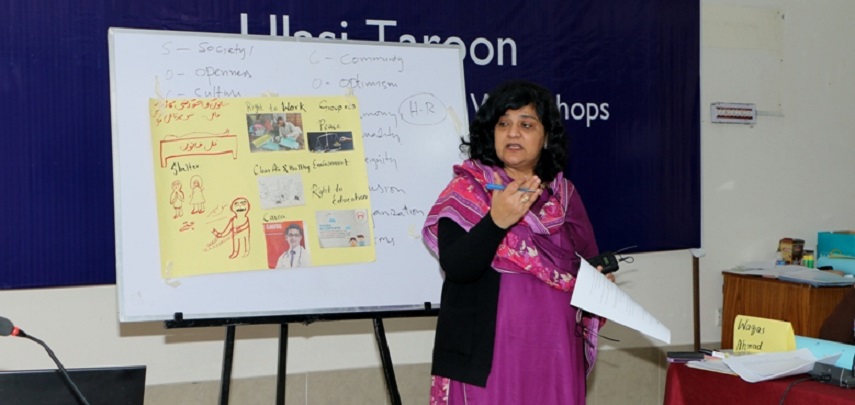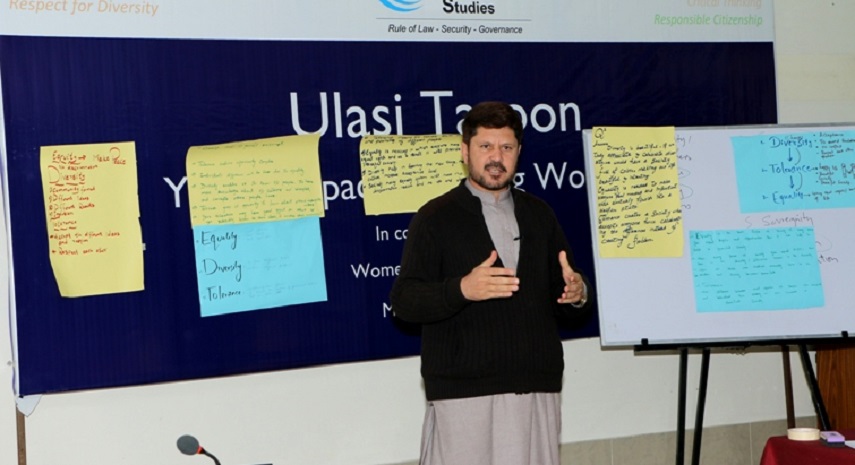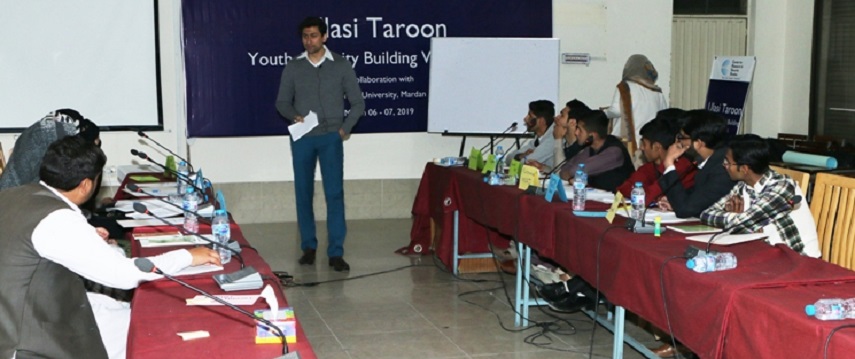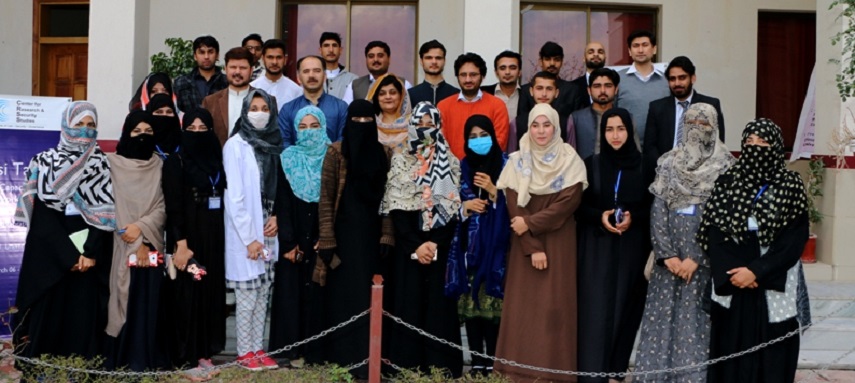Social cohesion refers to willingness of the people to respect, trust, cooperate with each other, and live together peacefully as equal citizens. Cooperation is the biggest reason why humans survived and socially evolutionized over the centuries and still exist among all the other species. The basis of human survival is cooperation; critical to prosperity, peace and growth. This cooperation mechanism among humans besides all other human affairs, relations and activities always needs to be regulated through laws for a sustainable survival, growth and prosperity of human race. This regulation is critical for equality regardless of socio-economic and political backgrounds, mutuality, transparency, certainty of law, universality and equal distribution of resources. The concept of mutuality calls for the due performance of citizens’ responsibilities while they enjoy their rights. These are all the ideas which led to the concept of rule of law.
These were the remarks made by the District Police Officer (DPO), Swabi, Syed Khalid Hamdani, during the fifteenth round of Ulasi Taroon, Youth Capacity Building Workshops organized by the Center for Research and Security Studies (CRSS) in collaboration with the Women University Mardan from March 06-07, 2019.
“Crises if survived, can bring out the best in us”, He added. The issues witnessed with the public institutions are the issues with the society at large as these institutions reflect the collective values of the society. Thus, we need to improve our value system and make it consistent with the fundamental values of humanity.
DPO Swabi said that there is a huge onus on youth to help identifying the evil and promote the good; positive values in the society. Being a student is a privilege and for youth’s contribution for rule of law, sky is the limit. They must develop critical thinking and challenge the stereotypes with a rational approach. They must strive to learn in order to compete, grow and articulate as clarity comes through knowledge. The information once practiced becomes knowledge.
Dr. Jamil Ahmad Chitrali, University of Peshawar, said that mere absence of war is not peace; it needs much more than that including provision of fundamental human rights, opportunities for social inclusion and mobility. A society can only be called cohesive when there is no discrimination and inequality and its citizens comply with their social contract, and adhere to laws. One of the prime ingredients to nourish democracy is education; a fundamental human right available to the citizens in the constitution of Pakistan vide Article 25A. Inclusive dialogue leads to modernity, cohesion and a more connected future. The essence of democracy lies in compliance with the core constitutional values like respect, equality, acceptance, accountability and rule of law. It means accountability at all tiers of both state and society. In a democratic state, the institutions should respect each other, operate within their respective domains, and develop inter-institutional synergies and cooperation. The legislature, judiciary and executive should only commit to legislation, adjudication and execution respectively. The public also needs to be sensitized and educated in the democratic values for their peaceful coexistence and prosperous future. The leaders must lead with practical examples as the most powerful way to inspire the future leaders into social action and community development. The people at helm of the affairs in democracy have to be impartial and ensure indiscriminate accountability. They should also be aware of their mandate, roles and responsibilities. It reflects badly on the entire nation at the global level if the states are not functioning on merit and devoid of transparency, representation, accountability.
Mrs. Shagufta Khalique, educationist underscored the importance of educating public on the rights and responsibilities anchored in their constitution as well as the international commitments like UDHR. The role of youth in promoting these ideals of equality and tolerance is direly needed. Once the diversity and differences are accepted in a society, the ultimate result is peace. Democracy is also an attitude that needs to be inculcated among youth with practical examples. We must understand that dialogue is the key to resolve the disputes and differences rather than force or coercive means.
Mr. Shams Momand, Project Manager, CRSS spoke about the role of media including broadcast, print and social media to counter radicalization and disseminate the positive messages and tolerance perspectives. It has tremendous outreach key to cultivate the public in the cohesive values. The youth should positively use this platform to spread the messages of peace and harmony.
Mr. Malik Mustafa, Manager Programs, CRSS underscored that the key to social cohesion lies in abiding by the core constitutional values of peace, respect and coexistence enshrined in the constitution. The gratitude and optimism are the virtues that can not only nurture happiness but can also change the way the youth can pursue their visions and achieve success.
Ulasi Taroon is a counter radicalization initiative of CRSS that aims to address the radicalization challenges, extremist ideologies and foster social cohesion through a discourse anchored in the core constitutional values which are fundamentally essential prerequisites for social peace and harmony. The endeavor aims to cultivate and sensitize the youth – in the universities across KP – in the core values in the Pakistani constitution and our social contract. It’s an attempt to highlight the criticality of abiding by these ideals – such as adherence to rule of law, primacy and sanctity of constitution, equal citizenry, responsible citizenship, respect for fundamental human rights, tolerance for diversity and different opinions, inclusive democracy and good governance – as a measure of fostering social cohesion and peaceful co-existence.

